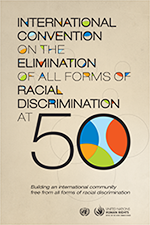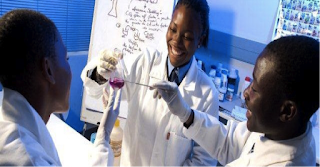The first session of
the Forum on Human Rights, Democracy and the Rule of Law focused on the role of
youth in public-decision making. The Forum was established by the Human Rights
Council (HRC) through resolution 28/14, adopted on 26 March 2015. The purpose of the Forum is “to provide a
platform for promoting dialogue and cooperation on issues pertaining to the
relationship between these areas” and to “identify and analyze best practices,
challenges and opportunities for States in their efforts to secure respect for
human rights, democracy and the rule of law”.
The resolution also decided that the theme of the first session would be
“Widening the Democratic Space: the role of youth in public decision-making”.
The Forum was co-chaired by Mr. Ahmad Alhendawi, UN Secretary-General’s Envoy
on Youth, and H.E. Ambassador Daniiar Mukashev, Permanent Representative of the
Kyrgyz Republic to the UN. The Forum
took place on 21-22 November 2016 in La Salle des Emirats (Room XVII) at Palais
des Nations.
The mission of the Office is to create and promote a network between the Institute of the FMAs and the United Nations, its bodies and mechanisms for the protection and promotion of Human Rights. We seek to participate in drafting of international policies aimed at promoting the “Right to Education for All”. To this end, the Office organizes training courses, gives international visibility to the activities realized by the Institute worldwide and promotes new collaboration networks.
Welcome!
We are glad to inform you that after our pleasant experience with the Italian blog, the IIMA Human Rights Office has decided to open a new blog in English.
On this blog, you may follow our main activities with the United Nations and its mechanisms for the protection and promotion of human rights, as well as news from the UN bodies and IIMA offices in different countries related to the right to education.
Do you want to collaborate with us? You can apply for an internship at the IIMA Human Rights Office. Click here!
Have a great time reading!
30.11.16
26.11.16
The General Assembly Adopts Declaration on the Right to Peace
25.11.16
International Day for the Elimination of Violence Against Women
Today is
the International Day for the Elimination of Violence Against Women. From
November 25th through December 10th (Human Rights Day) the UN proposes the 16
Days of Activism against Gender-Based Violence. Violence against women is a
human rights violation, a consequence of the persisting inequalities between
men and women in law and practice, and it has been identified as a global
pandemic.
23.11.16
Human Rights Advocacy: A Cause Worth Committing To
An Interview with Maria D’Onofrio, Advocacy Officer at
Istituto Internazionale Maria Ausiliatrice
The IIMA Human Rights Office conducted an
interview with Maria D’Onofrio, Advocacy
Officer at Istituto
Internazionale Maria Ausiliatrice (IIMA) and Secretary General of the
International Catholic Center of Geneva (CCIG). On September 22nd D’Onofrio sat on
the Panel Discussion on Youth and Human Rights during
the 33rd session of the Human Rights Council. As a young women and a
former intern of the IIMA Human Rights Office, we asked D’Onofrio to share the
story of her personal empowerment and how this led her to become a permanent
human rights advocate in Geneva.
21.11.16
Seeing the World through the Eyes of the Youth
An Interview with Simon-Pierre
Escudero, Founder of
Asociación Tierra de
Jóvenes in El Salvador
The IIMA Human Rights Office conducted an interview
with Mr. Simon-Pierre Escudero, founder of Asociación
de Tierra de Jóvenes in El Salvador. On September 22nd, Mr.
Escudero sat on the Panel Discussion on Youth and Human Rights during the 33rd
session of the Human Rights Council. Tierra
de Jóvenes was founded in February of 2014 to protect the rights of street
children and youth ages 4-25 in El Salvador. Gang activity in this country is
particularly pervasive and street children are most often the victims of
recruitment. To address the cycles of violence that are present amongst this vulnerable
population, Tierra de Jóvenes works
to bring street children’s concerns to the forefront of governmental and
international conversations. Tierra de
Jóvenes connects street children with medical, social and administrative
assistance. However, more than anything, Tierra
de Jóvenes focuses on building friendships with these children and youth
and provides a listening ear when one is needed.
As a former intern of the IIMA Human Rights Office and
being 25 years of age, we asked Mr. Escudero to share the story of his personal
empowerment and how this led to the launch of Asociación de Tierra de Jóvenes.
IIMA: In few
words, how would you describe the work of Tierra
de Jóvenes?
 Simon-Pierre Escudero: The clear goal of
our association is not just the protection, but also the promotion of the
rights of children working and living on the street. We promote their rights to
influence governments and the United Nations. We speak of these children so
they may exist and we try to change society through the mechanism of the United
Nations. I can work as an educator, but I would only change the reality of one
child. Why are these children here? There are very global phenomena behind that
question and these phenomena can be changed here in the United Nations.
Simon-Pierre Escudero: The clear goal of
our association is not just the protection, but also the promotion of the
rights of children working and living on the street. We promote their rights to
influence governments and the United Nations. We speak of these children so
they may exist and we try to change society through the mechanism of the United
Nations. I can work as an educator, but I would only change the reality of one
child. Why are these children here? There are very global phenomena behind that
question and these phenomena can be changed here in the United Nations.
IIMA: How did you
have the idea to start Tierra de Jóvenes
and why is it bear that name?
SPE: First, the idea of the street child caught my
attention. Probably because my father had been a street child in France…Second,
I am French, but I have a Spanish surname. It is assumed that my grandfather or
great-grandfather came to France during the civil war in Spain. You could say
that I am a “mix between a family destroyed by migration and a super-cohesive
family from the country.” My mom is a country woman and my dad is a city man
and street child. That gave me good roots and, at the same time, made me ask
"why are there so many problems in the world?" My last name
(Escudero) brought me to visit Spain, and after Spain I came to Latin America,
a place that fascinated me.
20.11.16
91st Session of the Convention on the Elimination of Racial Discrimination (CERD)
The Committee is holding its 91st session at the Palais Wilson from November
21 to December 9, 2016. The Committee is a body of 18 independent experts tasked to monitor the
implementation of this Convention by its State Parties. During this session, the Committee will be considering
the reports of the following States: Argentina*, Italy*, Portugal*, Togo*, Turkmenistan,
and Uruguay*.
* These reviews are attended by IIMA
representatives.
The International Convention on the Elimination of all Forms of Racial
Discrimination (CERD) was adopted on December 21, 1965 and entered into force
on January 4, 1969. As of October 2016,
there are 177 State Parties to the Convention. Additional
information on CERD can be found here.
15.11.16
UN Celebration of International Day of Tolerance
Since 1996,
November 16th has been designated as the
International Day for Tolerance. The yearly recognition of this day continues
to hold relevance, especially as we find ourselves in a world where violent
extremism is on the rise, where there is no foreseeable end to armed conflicts,
where differences in race, religion, gender, social-status, etc. are often
enough to trigger violent—and sometimes deadly—outbursts.
Every two
years on this day UNESCO awards the Madanjeet Singh Prize for the Promotion of
Tolerance and Non-Violence. This year, the award goes to the Federal Research
and Methodological Center for Tolerance Psychology and Education of Russia,
which creates educational programmes to promote dialogue between youth with
different religions and worldviews.
Read more: http://www.un.org/en/events/toleranceday/
7.11.16
Celebrating World Science Day for Peace and Development
November 10th
is World Science Day for Peace and Development and has been celebrated since
2001. The 2016 celebration seeks to emphasize the importance of science centers
and museums to foster science communication. One of its goals is also to
support teachers who are making children excited about science and are
encouraging them to use their creativity to make a positive impact on the
world. Furthermore, this day can be especially useful for inspiring young women
to enter STEM fields, seeing as they are vastly underrepresented in these
careers.
On this day,
let us renew the worldwide commitment of the 1999 UNESCO-ICSU World Conference
on Science in Budapest to using science for purposes of peace and development.
Read more: http://www.un.org/en/events/scienceday/
Read more: http://www.un.org/en/events/scienceday/
Marrakech Climate Change Conference – November 2016
The twenty-second session of the
Conference of the Parties to the UN Framework Convention on Climate Change (COP
22), the twelfth session of the Conference of the Parties serving as the
meeting of the Parties to the Kyoto Protocol (CMP 12) and the first session of
the Conference of the Parties serving as the meeting of the Parties to the
Paris Agreement (CMA 1) will be
held in Bab Ighli, Marrakech, Morocco from 7-18 November 2016.
59th Session of the Committee on the Convention Against Torture
The Committee
is holding its 59th session at the Palais Wilson from November 7 to December 7,
2016. The
Committee is a body of 10 independent experts tasked to monitor the
implementation of this Convention by its State Parties. During this session, the Committee will be
reviewing the reports of the following States: Armenia, Cape Verde, Ecuador*, Finland,
Monaco, Namibia, Sri Lanka*, Turkmenistan.
The Convention
Against Torture and other Cruel Inhuman or Degrading Treatment of Punishment
(CAT) entered into force on June 26, 1987. As of August 2016, there are 159 State Parties
to the Convention. Additional information on CAT can be found
here.
* These reviews are attended by IIMA representatives.
4.11.16
International Day for Preventing the Exploitation of the Environment in War and Armed Conflict
November 6th marks 15 years since the first celebration of the
International Day for Preventing the Exploitation of the Environment in War and
Armed Conflict. The environment is the “unpublicized victim of war.” According
to the United Nations Environment Programme, over the last 60 years 40% or more
of internal conflicts have been linked to the exploitation of valuable
resources or the scramble for scarce ones. Resolution 15 of this year’s
UN Environment Assembly highlights the fact that healthy ecosystems and
sustainably managed resources reduce the risk of armed conflict. Therefore, in
order to work towards peace in our world, we must not discount the needs of the
planet on which we live.
"On
this International Day, I urge governments, businesses and citizens around the
world to prioritize environmental care and the sustainable management of
natural resources for preventing conflict, building peace and promoting lasting
prosperity."
Secretary-General Ban Ki-moon
3.11.16
26th Session of the Universal Periodic Review
Subscribe to:
Comments (Atom)









